Fetal Polycystic Kidney Disease
Fetal polycystic kidney disease. Autosomal Dominant Polycystic Kidney Disease ADPKD This is the most common hereditary renal cystic disease with an incidence of 11000. The kidneys are replaced by multiple irregular cysts of variable size with intervening hyperechogenic stroma. Renal and paediatric input Genetic counselling.
The polycystic kidney disease-1 gene which is mutated in the majority of patients with autosomal dominant polycystic kidney disease has been identified. It can lead to kidney failure. A molecular prenatal diagnosis was performed at 10 weeks on fetus 2 a sib of fetus 1.
We report on 3 cases with a fetal presentation of autosomal dominant polycystic kidney disease ADPKD which illustrate the variable expression of ADPKD during fetal life. If bilateral there is. Published by John Wiley Sons Ltd.
Bilaterally enlarged and homogeneously hyperechogenic kidneys. It causes many cysts filled with fluid to grow in the kidneys. 2 Previous investigators have demonstrated an association between birth weight and the development.
It is caused by mutations in both alleles of the PKHD1 gene. Fetal multicystic dysplastic kidney MCDK is a condition that affects the development of one or both of your babys kidneys before birth. These results suggest that polycystins major role is in the maintenance of renal epithelial differentiation and organization from early fetal life.
It is usually manifested in adults between 35 and 40 years of age. In the body the kidneys help filter waste products and make urine. Prenatal ultrasonography results were correlated with positive family history of polycystic kidney disease PKD fetal enlarged kidneys and oligohydramnios.
ARPKD can cause a child to have poor kidney function even in the womb. Fetus 1 was diagnosed at 20 weeks of gestation by ultrasonography.
Bilaterally enlarged and homogeneously hyperechogenic kidneys.
ARPKD can cause a child to have poor kidney function even in the womb. Prenatal diagnosis in affected families can. The association between a kilogram increase in birth weight and an increase in age of onset of ESRD of 17 years is further support for the hypothesis put forward by Barker more than 50 years ago indicating that the fetal environment contributes to the development of a variety of chronic adult diseases. Polycystic kidney disease PKD a common genetic cause of chronic renal failure is characterized by accumulation of fluid filled cysts in the kidney and other organs. The disease is caused by mutations in the PKD1 gene 85 of cases on chromosome 16p1313 and PKD2 gene 15 of cases on chromosome 4q1323. Renal and paediatric input Genetic counselling. The kidneys are replaced by multiple irregular cysts of variable size with intervening hyperechogenic stroma. 8 A fetus or baby with ARPKD has fluid-filled kidney cysts that may make the kidneys too big or enlarged. PKD can be inherited as an autosomal recessive ARPKD or autosomal dominant trait ADPKD.
These results suggest that polycystins major role is in the maintenance of renal epithelial differentiation and organization from early fetal life. The protein encoded by this gene polycystin has no homology with any gene known thus far. Autosomal recessive renal polycystic kidney disease occurs in 1 in 20000 live births. The corticomedullary differentiation is increased. The polycystic kidney disease-1 gene which is mutated in the majority of patients with autosomal dominant polycystic kidney disease has been identified. Polycystic kidney disease PKD is a rare genetic disorder. Renal and paediatric input Genetic counselling.
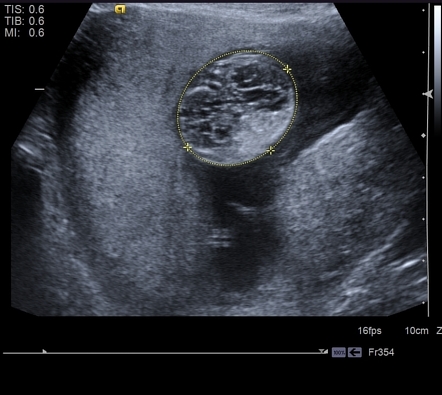
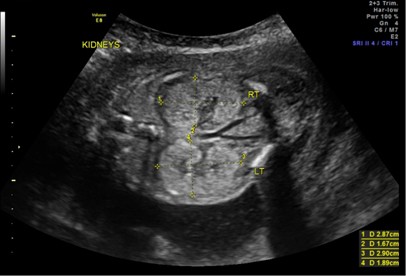



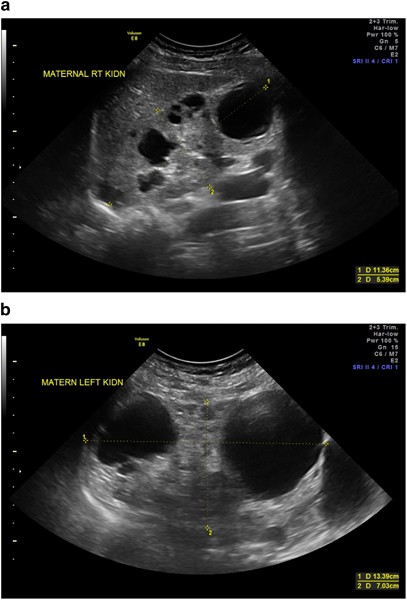


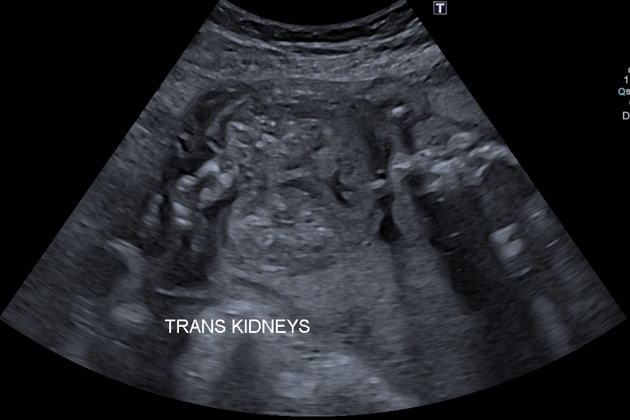
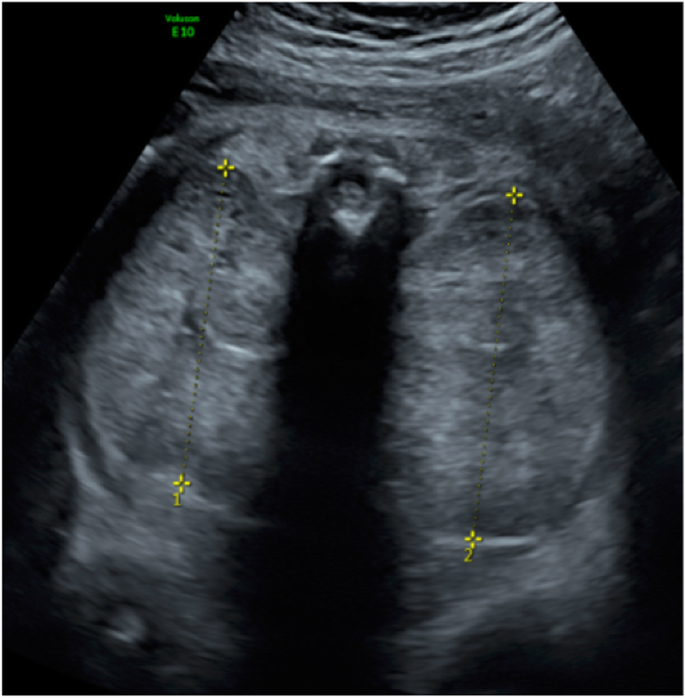
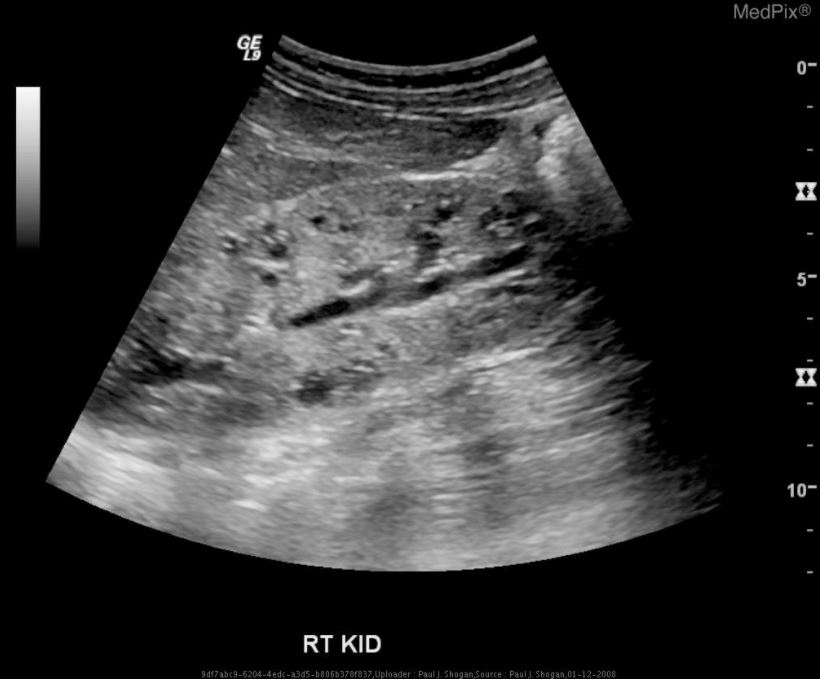
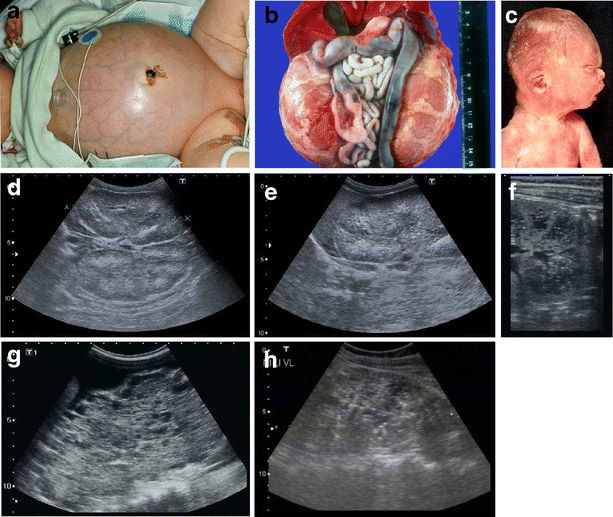

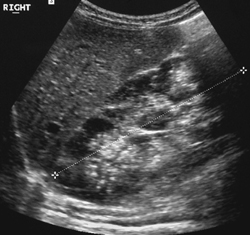






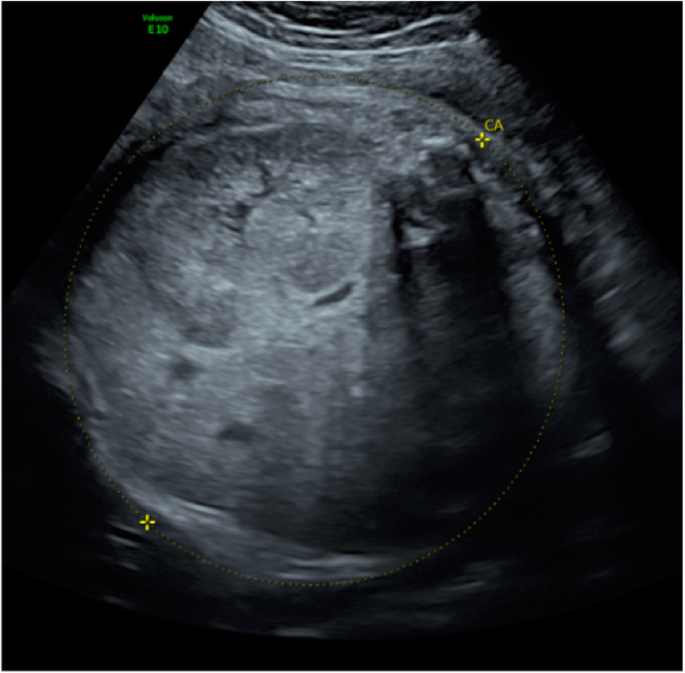
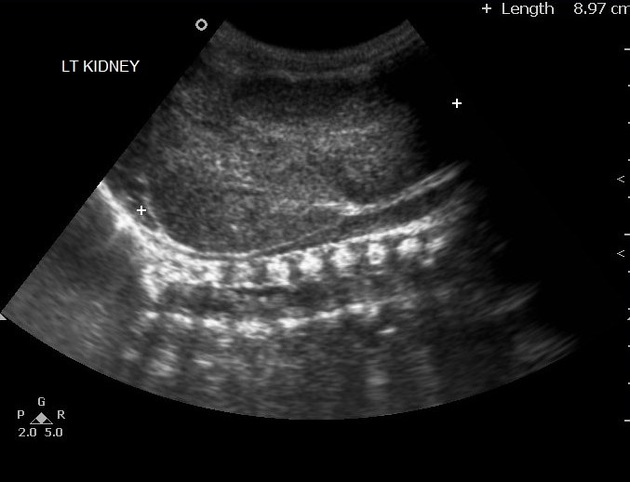


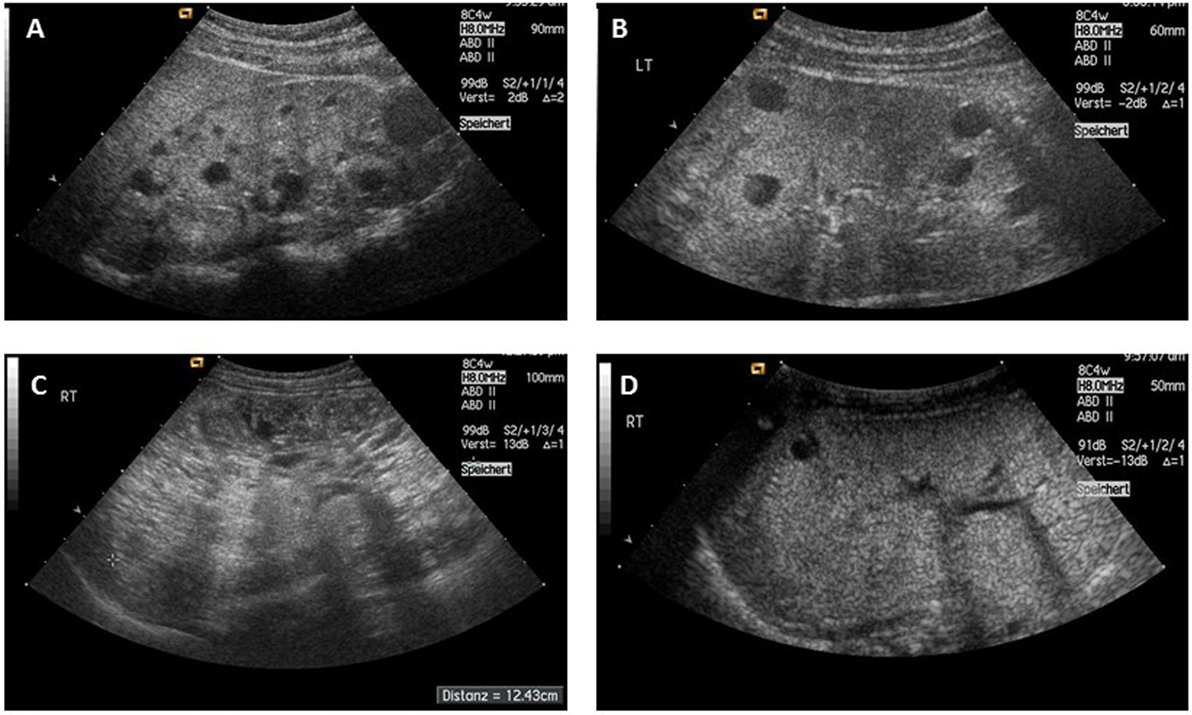



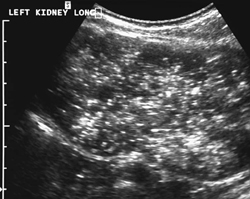


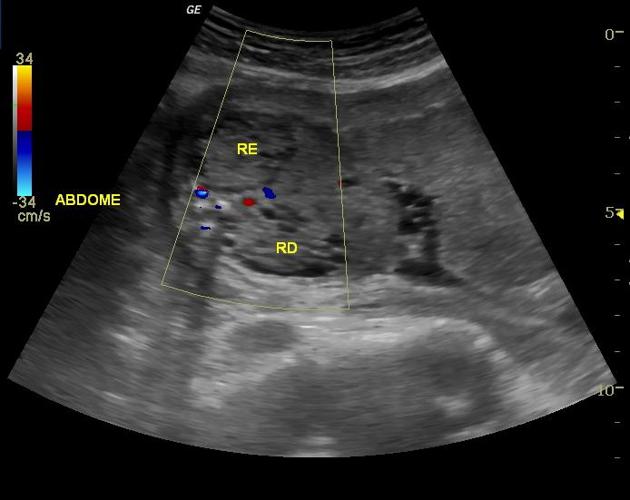


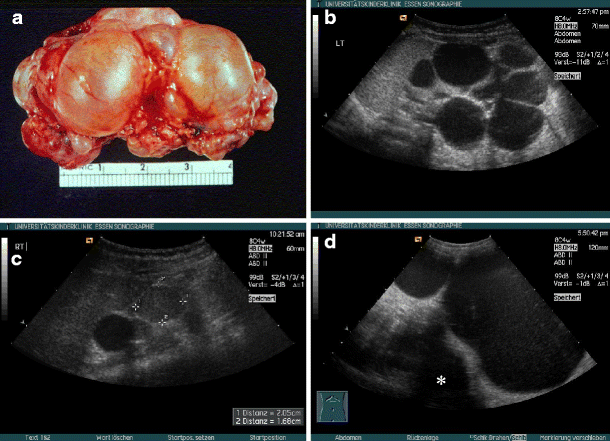


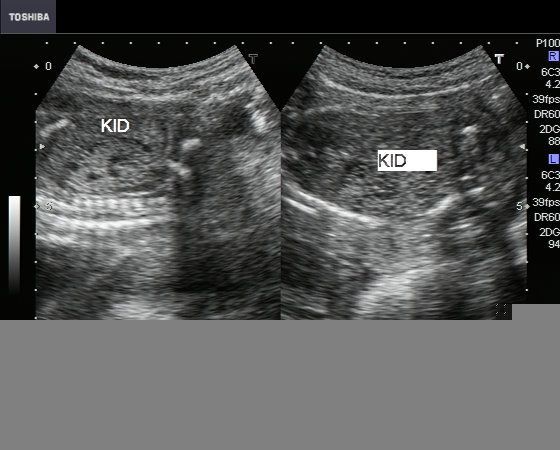


Post a Comment for "Fetal Polycystic Kidney Disease"